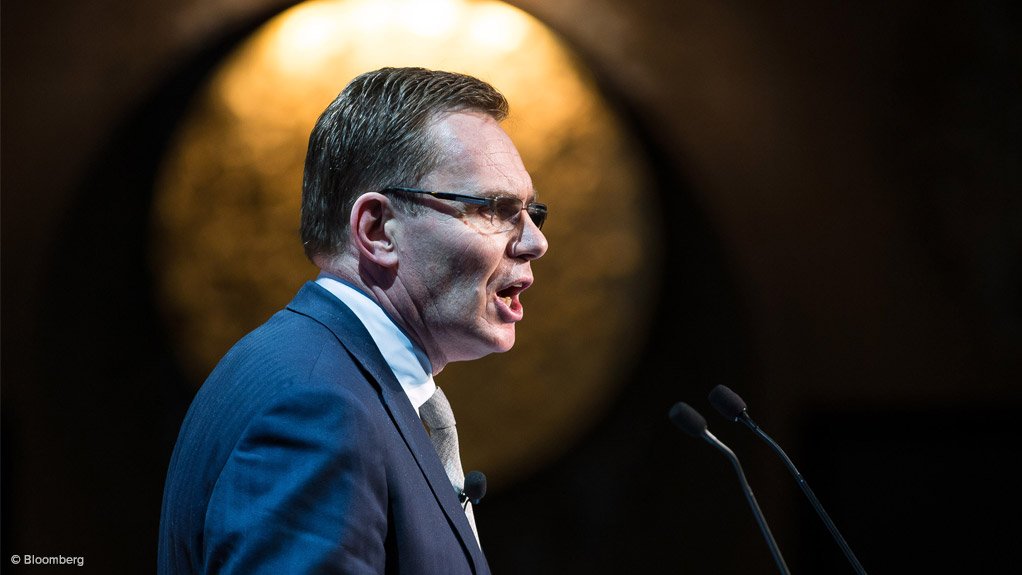SINGAPORE – The iron-ore market will take longer to balance out than other commodities as excess supply may take years to be absorbed after a boom, according to BHP Billiton CEO Andrew Mackenzie, who flagged his company’s low production costs as a lure for hedge-fund investors.
“There are some commodities, like oil and copper, where there is a natural decline because pressure drops off, grade drops off,” Mackenzie said in New York after making an address. “One of the markets that will take longest to come back into balance is the iron-ore market.”
Iron ore dropped for three years to 2015 as low-cost miners including BHP and rivals Rio Tinto and Fortescue Metals ramped up output just as growth cooled in China, spurring a glut. Prices staged an unexpected rally in the opening months of this year amid a speculative frenzy in China, before dropping again. Mackenzie said in March he was more bearish on iron-ore than other raw materials that BHP produces.
'MORE REALISTIC’
“The reality is we’ve settled down now to a price that we would say is more realistic on the basis of fundamentals of supply and demand,” Mackenzie said on Monday, speaking in response to an audience question. “We’ve had such a long boom. To walk that through, in my view, may take another 10 years.”
Ore with 62% content was at $51.06 a dry ton on Monday after losing 28% since topping $70 in April, according to Metal Bulletin. The raw material peaked in 2011 at more than $191, and the slump has prompted closures and mergers among higher-cost miners.
“Consolidation, particularly of the high-cost producers, it will carry on much longer than you think they humanly should,” Mackenzie said. “In the meantime, you’ve got to be at the bottom of the cost curve, you’ve got to be doing everything I’ve said, running things in the most productive way possible, or your hedge funds won’t want to invest in us.”
Mackenzie said last month BHP is increasing exploration and investment in copper and oil, signalling a shift from cutting costs with or without a recovery in prices. The company has previously flagged copper and petroleum as its key focus for growth amid expected supply constraints for both commodities.
OIL'S RALLY
Crude oil, which plunged in February to the lowest since 2003, has rebounded almost 90% amid signs the global surplus is easing as US output drops. While copper prices are lower in London this year, Melbourne-based BHP has forecast a deficit may swell to more than four-million tons from 2023.
There’s more iron-ore supply on the horizon, according to Goldman Sachs Group, which expects lower prices this year. The largest miners will expand shipments in the third quarter, and even minor suppliers are expected to boost exports, the bank said in a report last week.
Cargoes from Australia may rise 10% to 846-million tons this year, the country’s Department of Industry, Innovation & Science estimates, while Brazilian exports will gain about 7% to 393-million tons. The two countries are the top shippers of seaborne ore, while China is the biggest user.
Edited by: Bloomberg
EMAIL THIS ARTICLE SAVE THIS ARTICLE
To subscribe email subscriptions@creamermedia.co.za or click here
To advertise email advertising@creamermedia.co.za or click here













